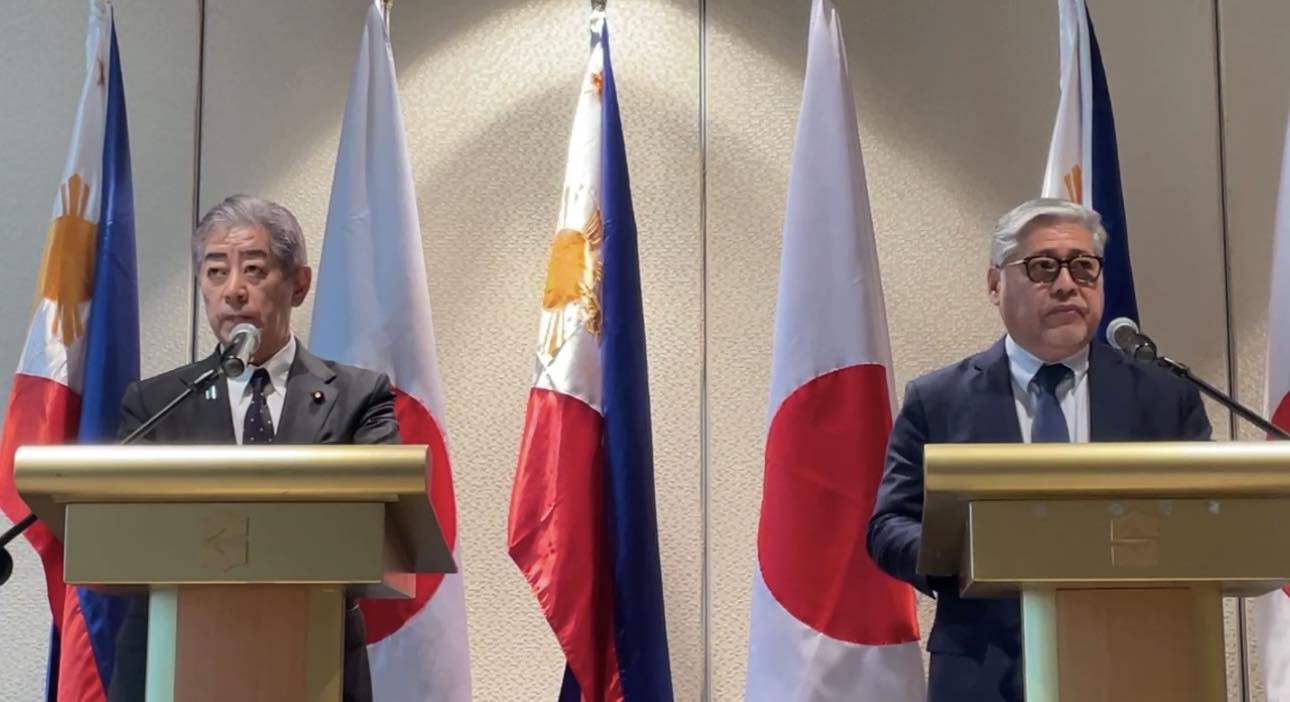PH, Japan to sustain trilateral momentum with US under Trump
Department of Foreign Affairs (DFA) Secretary Enrique Manalo and Japanese Foreign Minister Iwaya Takeshi reaffirmed on Wednesday, Jan. 15, the two countries commitment to the trilateral cooperation with the United States under the incoming Trump administration.
 (From left) Japanese Foreign Minister Iwaya Takeshi and DFA Secretary Enrique Manalo during a joint press conference held at the Shangri-La The Fort in Taguig City on Wednesday, Jan. 15, 2025. (Raymund Antonio/MANILA BULLETIN)
(From left) Japanese Foreign Minister Iwaya Takeshi and DFA Secretary Enrique Manalo during a joint press conference held at the Shangri-La The Fort in Taguig City on Wednesday, Jan. 15, 2025. (Raymund Antonio/MANILA BULLETIN)
In a joint press conference, the two officials shared that their earlier discussion delved into the future of the trilateral cooperation not only with Washington but with other “like-minded” countries as well.
Manalo said that they agree to work together for the peace, stability, and freedom of navigation and trade of the Indo-Pacific region.
“And in this context, we have also discussed today our commitment to pursue our trilateral cooperation between Japan, the United States, and the Philippines,” he stressed, adding that this was also reaffirmed during the televideo conference between President Marcos, Japanese Prime Minister Shigeru Ishiba, and US President Joe Biden earlier this week.
Echoing Manalo’s remarks about how they “reaffirm to continue our communication with the incoming US administration,” Iwaya revealed plans to attend the inauguration of President-elect Donald Trump on Jan. 20.
“Moreover, Secretary Manalo and I agreed to further strengthen cooperation in maritime security arena through working with the like-minded countries such as Japan, Philippines, United States trilateral partnership and also to maintain good communication with next US administration to maintain and strengthen the momentum of trilateral cooperation,” the Foreign Minister said.
“Japan would continue going forward to work with the Philippines in bolstering our bilateral and multilateral cooperation in realizing a free and open Indo-Pacific based on rule of law,” he added.
Iwaya underscored the importance of a trilateral cooperation as this is a framework “in realizing free and open Indo-Pacific based on rule of law as concrete partnerships in areas of maritime security, response to economic coercion, critical infrastructure, and cyberspace are progressing.”
The first US-Japan-Philippines’ leaders’ summit was held in April last year at the White House, and was eyed closely by China for possible defense posture.
In July, the Philippines and Japan signed the Reciprocal Access Agreement (RAA) to allow Japanese defense forces in the country.
The agreement is similar to the Philippines Visiting Forces Agreement (VFA) with the US.
In his remarks during the joint press conference, Manalo stressed the two countries’ commitment to the rule of law and rules-based order in the South China Sea and the East China Sea.
As both countries have similar territorial issues with China, the DFA chief also said they “will work together, leveraging our Strengthened Strategic Partnership with other like-minded states including our Trilateral cooperation with the United States, in preserving, upholding, and defending the rules-based international order and in working for a free and open Indo-Pacific.”
“The Philippines’ relationship with Japan is among the most resilient and dynamic partnerships in the region. Under our shared principles of democracy, respect for human rights and the rule of law, and a free and open economy, our relations and cooperation shall continue to prosper,” he added.